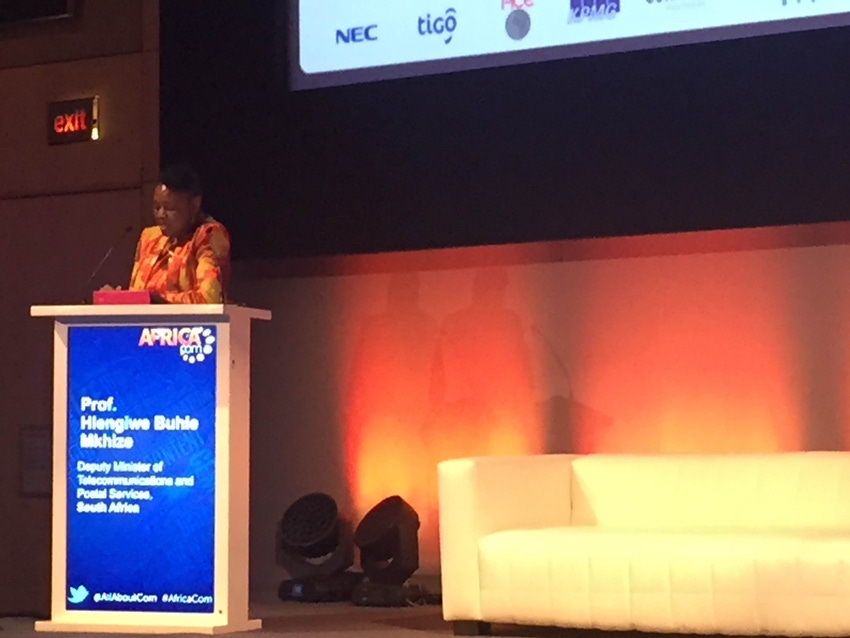In her keynote session at AfricaCom 2015, the deputy minister for telecommunications and postal services for the South African government stressed the crucial role of ICT in the development of societies and economies in Africa.
November 18, 2015

In her keynote session at AfricaCom 2015, the deputy minister for telecommunications and postal services for the South African government stressed the crucial role of ICT in the development of societies and economies in Africa.
“In an increasingly connected world, ICT is playing a crucial role in enabling development of socio-economic growth,” said Professor Hlengiwe Mkhize. “At a recent summit on ICT in Tunisia, the primary topic was internet of course; but we were all reminded of the basic elements of this, like access. Development of ICT infrastructure is big on the agenda for us; we’re considering the use of satellites in areas where broadband rollout is much harder. We have clear targets for broadband rollout across the continent.”
Mkhize went on to discuss the role of government in aiding the development of telecoms access across Africa, stressing the importance of cooperation with the private sector.
“As much as the ICT revolution is driven by the private sector, which is a good thing, as a government we have an important role to play to make sure our policies are aligned with the view of the private sector,” she said. “One of the most important things we’re struggling with in our policies is the digital divide; some people think it’s no longer a question. But across the whole continent we’re still so dependent on imported devices, so the cost is unreasonably high if you have to import the entirety of your connectivity platforms. From a policy point of view, that’s one of the difficulties we have in narrowing the gap between developed and developing countries.”
In 2014, South Africa had a broadband penetration rate of 48%, the deputy minister said, and so there’s clearly a huge growth opportunity. The deputy minister was quick to add, however, that the majority of connections in the country come from what she called the “Golden Cities”: Cape Town, Johannesburg, Durban and East London.
Elsewhere in the keynote, the deputy minister announced projects rolling out across the continent to deliver submarine cable carrying 8 terabits of capacity down the coastlines of Africa. She also touched upon the importance of mobile money and banking services being rapidly taken up in many countries across the continent, led by the success of platform m-Pesa.
Mkhize closed by again emphasising the importance of ICT in driving the future of the African continent.
“We are working on the 2030 agenda, in which the development of ICT is referred to as the “ghost goal”, and this underpins the principal of all of our goals for connecting the continent,” she said.
About the Author(s)
You May Also Like








.png?width=300&auto=webp&quality=80&disable=upscale)


_1.jpg?width=300&auto=webp&quality=80&disable=upscale)


.png?width=800&auto=webp&quality=80&disable=upscale)